- Home
- Joel Goldman
Jack Davis Mystery - 01 - Shakedown Page 3
Jack Davis Mystery - 01 - Shakedown Read online
Page 3
Latrell rose, slipping on the bloody ?oor, catching himself against the stair rail. He took the steps one at a time. There was no need to hurry. It was happening exactly as he imagined it would. He found them hiding in a closet.
Afterward, he went out the back door, standing on the concrete patio, the rain in his eyes. Blinking, he looked down at his feet. His galoshes were splattered with blood, the coppery smell all over him. He peeled them off, turned them inside out, stuffing one on each hip inside his belt.
Latrell held his hands up, squinting. They were steady. He put one hand on his chest, his heart barely registering.
All he wanted to do was go home, until he saw Oleta Phillips standing beneath a tree on the side of Marcellus’s backyard, staring at him through the driving rain. The tree’s limbs drooped in surrender to the summer’s drought, yellowed leaves scattered around the trunk. Her thin dress was soaked and matted against her bony frame, arms hanging at her sides, one hand clutching a wad of cash.
He didn’t know whether she’d seen him go inside Marcellus’s house, but she’d seen him come out and that was all that mattered. She didn’t move as he approached her.
“Thank you,” she said.
Latrell didn’t know what to say. He studied Oleta’s face, seeing her, then his mother, then Jalise, then all of them. He raised his hands to her throat, tightening his grip, feeling the bones in her neck crumble, twenty-dollar bills dropping from her hand, mixing with the dead leaves.
Chapter Six
Police cars, lights ?ashing, had formed a barricade at each end of Marcellus’s block by the time I arrived. Overhead, a helicopter swept the neighborhood with a spotlight. The SWAT team had taken up position on either side of the crack house. I ?ashed my badge at a KCK police sergeant who let me through the line. Every house except Marcellus’s was lit up, people watching from covered porches, some standing in the rain. Troy Clark emerged from the shadows on one side of the house.
“What do we got?” I asked him.
Troy had grown up in Quindaro and ?irted with gangs until his grandmother set him straight, telling him he was too strong and too smart to die young for some fool weaker and dumber than he was. In his late thirties, pushing six feet and chiseled, he was tough, stubborn, and ambitious, a combination that could make you dead or make you famous.
Troy wasn’t afraid of death, and he didn’t care about being famous. What he cared about was my job, the SAC’s job, and the director’s job, all of which he made clear he intended to have before he was through. He didn’t hesitate to second-guess me and was right more often than I cared to admit. I didn’t like him, but I respected him even though his stubborn streak occasionally blossomed into an outbreak of hysterical blindness.
“Door was open. I had a look inside. Three dead. I’m guessing it’s Marcellus and the Winston brothers.”
“Anybody else?”
“Don’t know yet. We haven’t gone in.”
“You think the shooter is still in there?”
“No way to tell from out here.”
I looked up and down the block. “Why is his house the only one without power?”
“It’s got power. There’s a utility box on the side of the house. We were going to turn the power off, go in with night vision in case the shooter decided to stick around. No reason to make us easy targets. But somebody had already turned the power off.”
I nodded, understanding the tactical dilemma. “The shooter cut the power and killed them in the dark. Probably wore night-vision goggles, too. Means he can see you as easily as you can see him. If he stuck around.”
“I think the shooter knew.” Troy said.
“Knew what?”
“About the surveillance camera in the ceiling fan.”
“Based on what?” I asked.
“It fits. Gives him a reason to cut the power.”
“Maybe. Go see if anyone else is home. But go easy. No good guys die tonight.”
I didn’t want to discuss Troy’s theory until I knew more about what had happened, especially if Troy was right. There was only one way the killer could have known about the camera in the ceiling fan. He had to have a source inside my investigation or, worse, he had to be someone on my team.
Flushing out a bad agent was one of the hardest things to do, especially in the middle of a case that was taking every waking hour. Besides, the odds were heavily against the leak coming from my squad or anyone else at the Bureau. Not that they were all saints. It just rarely happened.
I had begun making a list of plausible theories on my way to the scene, ignoring the pressure rising in my chest and throat. I knew that it would continue to build until the shaking started, releasing the tension like opening a relief valve. I pulled over a block from the scene, cut the engine, and let it happen, my eyes closed, bracing myself against the steering wheel as if I’d been punched in the gut.
The shakes tapered off and I started the car, focusing again on the gunshots I’d heard. The obvious explanation was that the shootings were drug related, that the killer worked for a competitor, or unhappy business partner, of Marcellus Pearson—maybe even the supplier I was after.
That option faded as I considered Troy’s suggestion of a leak. I ran through mental pictures of my agents, unable to imagine any of them selling out. Troy pulled double duty, working the SWAT team and my squad. All I had to do was look at him. There was no artifice, just dedication, even if it was more to his career than to the squad. Jim Day, Lani Hay-wood, and Ammara Iverson were so loyal they almost apologized for taking their paychecks.
Colby Hudson, my daughter’s boyfriend, was the last member of the team, the only one I hadn’t recruited for the squad. He was the lone holdover from the team my predecessor had assembled. All agents rotated through different assignments—organized crime, antiterror, and the rest. Colby had managed to stay on the drug squad, making a career working undercover. His newest best friend was Javy Ordonez, Marcellus’s number-one competitor for control of the neighborhood crack market. Colby looked the part, hair long and face scruffy. I trusted him with everything except my daughter.
One of Marcellus’s corner kids named Tony Phillips had been shot in a drive-by a few days ago. Maybe one of Javy’s people had done it. Maybe tonight’s shootings were the next round in a gang war. I needed to talk with Colby, who was the one member of my squad who wouldn’t be at the crime scene. Wearing a jacket with FBI printed on the back was not the secret of success for an undercover agent.
I found no weaknesses, no reason for suspicion, in my team. If there was a leak, it had to have come from outside the Bureau. That would be even harder to track down.
I silently recited the list of possible sources, including the cops who had tipped Marcellus about my phony search warrant, the utility company, the federal judge who issued the surveillance order, the judge’s law clerk who did the research that convinced the judge he could issue the order, and the judge’s secretary who typed it. I could round them all up and make them take polygraph tests—if I lived in another country and if I wanted to waste my time.
The lights came on in the house. Troy found me again.
“All clear. Two more dead in the upstairs bedroom. Jalise Williams and her boy.”
“Keyshon.”
“They were hiding in the closet. She was shielding the boy with her body. The killer shot right through her, killed both of them.”
I was supposed to care about all the victims equally, caring the most about catching their killer, but I couldn’t. Marcellus and the Winston brothers were garbage waiting to be thrown out. That didn’t mean they deserved to be murdered or that they didn’t count or that I would be any less determined to find out who was guilty of their murders. It meant that I wouldn’t mourn them the way I did Jalise and Keyshon.
Jalise’s story was sadly familiar: broken home, sexually abused as a kid. She had dropped out of school and hooked up with Marcellus, her version of Rescue Me. Wendy had me to watch her back. Jalise h
ad Marcellus to drag her down. There weren’t many retired crack dealers. I had watched the surveillance tapes enough to know she stayed out of his business. That didn’t make her innocent, but it put her in an outer circle where people had a right to expect an occasional break.
Keyshon was different, deserved better. He hadn’t made any of his parents’ bad choices, but their decisions cost him his life. I knew what that was like. I lost my son when he was six years old. Both boys could have been saved but for the mistakes their parents made.
Joy started drinking the day we buried Kevin. I let it go, blaming me, not her, hoping she’d come out of it, unable to ease her pain or mine. We hadn’t forgiven ourselves or reconciled, settling instead for a silently shared burden.
Both Jalise and I had failed to save our sons. That Jalise wouldn’t suffer the way my wife and I had was no consolation. I would hear their voices, mothers and sons, long after I caught Keyshon’s killer.
I asked Troy, “If the killer was after Marcellus, why kill the woman and the boy? The house is dark. They’re hiding in the closet. Odds are they didn’t see the killer and couldn’t identify him.”
“Maybe she was the target,” Troy said.
“What do you mean?”
“The shooter had to assume that Marcellus and the Winstons were armed and a threat to him. Makes sense that he put them down. But he put three rounds point-blank into a woman and child hiding in a closet who couldn’t have hurt him if they’d have tried.”
“Jalise Williams was nineteen. She wasn’t involved in Marcellus’s business. Who’d want to kill her?”
“Maybe she had something going on the side. Maybe the killer didn’t figure Marcellus would be home and took Jalise and the boy out to punish him for something.”
I rolled my eyes. “That’s the best you can do?”
Troy shrugged. “Why kill her and the kid? You got me. All I know is that’s why we get the big money—to figure out crazy shit like this.”
The helicopter started another circle, rotors thumping, its searchlight spraying the dark. My squad and what seemed like half the Kansas City, KS, police department stood in loose clusters in the street waiting for orders.
“Get out of that ?ak jacket and start a door-to-door canvass.”
“Jack, it’s a quintuple murder. KCKPD will claim jurisdiction.”
“Tell them we’ve got it because of our ongoing drug investigation. Don’t hurt their feelings, but make sure they know this is our case.”
I waited until the crime scene investigators gave me the all clear, then walked up the steps, stood on the porch, imagining the killer standing there less than an hour earlier and wondering what went through someone’s mind in the instant before he slaughtered five people. If Marcellus had been the target and the rest merely collateral damage, I could picture a cool, methodical professional. Check his weapon, take a deep breath, get it over with, and get out, no survivors, no loose ends. If Jalise had been the target, I saw someone filled with rage, the kind of fury that propelled the killer to empty his weapon into a defenseless woman trying to save her child. I could imagine what the killer thought and felt but not what he looked like. I had learned a long time ago not to trust the face.
I stared through the open front door, preferring to study the scene while the rest of my squad started with the neighbors. I knew that the good people outnumbered the bad on these streets, but that didn’t mean they trusted the cops enough to tell us what they’d seen.
Even if someone came forward, I knew it wouldn’t be enough. Eyewitnesses were among the least reliable sources of evidence about a crime. People never experience an event the same way. Fear, anger and excitement distort recollection as much as differences in eyesight and hearing. Psychological factors load eyewitness testimony with bias and unreliability.
For me, that was the beauty of the crime scene. It didn’t have a face that hid the truth. It had no hidden agenda. It hadn’t just had a fight at home or too many drinks after work. It didn’t want to be interviewed on Court TV and it wasn’t trying to cover up. It wasn’t afraid of the cops, it wasn’t out to screw us over, and it wasn’t smarter than us. It was what it was and it never lied.
Chapter Seven
When I was assigned to the Dallas office, we lived in a new subdivision that must have been landscaped with a steamroller, it was so ?at. Half the families that lived on our block were with the Bureau, some of the agents buying their houses from the agent they were replacing, knowing they would sell it to their replacement a few years down the road. We knew each other’s spouses, kids, and dogs. Everyone looked out for everyone else, watching each other’s houses when someone was away for the weekend. The level terrain and the absence of trees more than eight feet tall made it easy to see everything.
We were watchers, noticers, detail people. Something strange, someone new, something that didn’t look or feel right, we picked up on it. It was what we were trained to do.
Frank Tyler lived three houses down from us. He was a computer programmer, worked out of his house, jogged every morning, waved to me when I drove Kevin and Wendy to school. Every year he dragged his Weber grill to the end of the street for the Fourth of July block party, grilling hot dogs and making balloon animals for the kids.
I must have seen his face a thousand times. Brown, welcoming eyes pinched at the corners; they always seemed to me to be from laughter and sun. A once-broken nose, crooked enough to make his face slightly off-kilter in an interesting sort of way. His mouth was full, his smile quick and easy. He wore his dark hair in a casual cut, angling across his forehead. That’s all I saw. It wasn’t enough.
Joy always picked the kids up from school. One day, she had car trouble. Frank worked at home and she asked if she could borrow his car. He told her that he had some errands to run and would be happy to swing by the school and pick up the kids. Wendy had Girl Scouts that afternoon. Kevin was the only one who would be coming home. She called the school to let them know that Frank would pick him up.
When Frank didn’t come back, Joy called the school. They told her that Frank had been there, shown identification, and signed the form confirming that he was taking Kevin as she had authorized. One of the teachers remembered seeing Kevin get in the car with Frank.
Worried, Joy went to Frank’s house, knocked, and went in when she found the door unlocked. She walked through the house, stopping in the den, where she found stacks of child pornography on a coffee table. That’s when she called me.
Today it’s called an Amber Alert. Back then we didn’t have a name for it. We didn’t need one. All agents dropped what they were doing to find Kevin. The Dallas police scoured the streets. A highway patrolman spotted Tyler’s car southbound on I-35 between Austin and San Marcos a few hours after he’d taken Kevin. The chase lasted thirteen minutes. It ended when Tyler ran over spikes the patrol had spread across the interstate to puncture his tires, the car swerving into the concrete median barrier. I was in a helicopter heading for the scene when Tyler shot Kevin and then put the gun under his chin, blowing up the face that had fooled me.
I thought about Kevin each time I stepped into a crime scene, promising him I would get it right this time, that I wouldn’t let him down and be deceived again by a friendly smile, an anguished cry, a poker face, or any of the other masks people wore.
I learned to trust hard facts, lab work, and the polygraph. My jury consultant friend, Kate Scranton, was different. She was all about behavioral clues—leakage, she called it—the face more than the body, the heart more than the mind. I wanted proof beyond a reasonable doubt. She wanted the truth, saying they weren’t always the same thing.
I stood in the doorway, absorbing the scene, letting the dead and the details talk to me, comparing the images with the hours of surveillance tape I had watched. I recognized the card table Marcellus used to conduct his business and the Louisville Slugger standing in the corner that had earned him his reputation. Plastic sandwich bags containing crack were scattere
d across the table’s vinyl surface, all of it probably worth less than ten thousand dollars on the street. It may have been enough to kill five people for, but at least for this killer, it wasn’t enough to steal after they were dead. That didn’t mean the murders weren’t about drugs. It only meant that the murders weren’t about these drugs.
The walls were bare. No pictures, no mirrors, no clocks. The hardwood ?oors were warped, a dimension I couldn’t see on the video; an upturned box of Chinese leftovers sat in one corner, a trail of fried rice littered across the ?oor. The only other furniture was two folding canvas chairs. This was a place of business, not a home, the old television in the corner the only concession to comfort.
The bodies rested in pools of blood beneath where they’d fallen. I’d let the crime scene specialists find the bullets, calculate the trajectories pre- and post-entry, but it wasn’t hard to pin down the basics.
Marcellus was on his back, his shoes less than five feet from the door, closer than the Winston brothers by several feet, the difference enough to make him the first victim the killer had confronted. That fit with me hearing him yell “what the fuck?” the instant before I heard gunfire. The entry wounds on Marcellus’s body were in his gut and chest, the volume of blood indicating that at least one bullet had hit an artery, probably causing him to bleed to death.
The Winston brothers were slumped on the ?oor on either side of the television. Rondell had taken a round in the belly and a round in the groin. DeMarcus was hit in the left thigh and the neck.
A professional would have put all his rounds in the killing zone—the center chest, making sure with a final round in the back of the head after his targets were down. This looked like the work of an amateur who had gotten lucky, except amateurs weren’t likely to use night-vision goggles. That wasn’t the only mixed message.

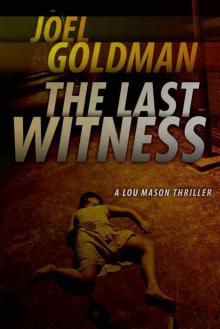 The last witness lm-2
The last witness lm-2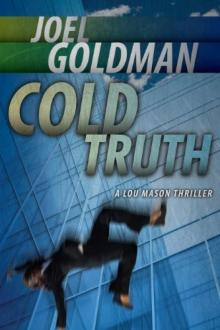 Cold Truth
Cold Truth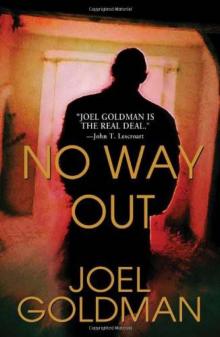 No Way Out (2010)
No Way Out (2010)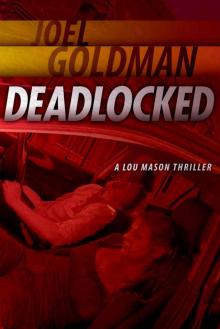 Deadlocked (Lou Mason Thrillers)
Deadlocked (Lou Mason Thrillers)![[Lou Mason 01.0] Motion to Kill Read online](http://i1.bookreadfree.com/i1/03/24/lou_mason_01_0_motion_to_kill_preview.jpg) [Lou Mason 01.0] Motion to Kill
[Lou Mason 01.0] Motion to Kill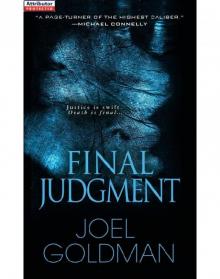 Final Judgment
Final Judgment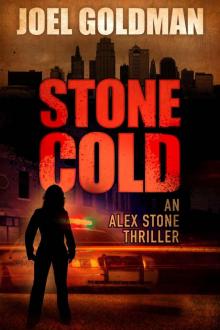 Stone Cold
Stone Cold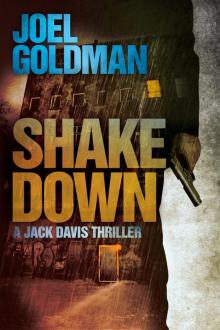 Shakedown
Shakedown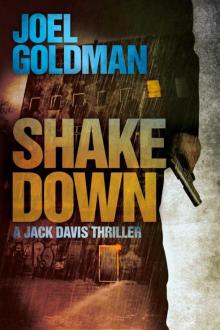 Shakedown jd-1
Shakedown jd-1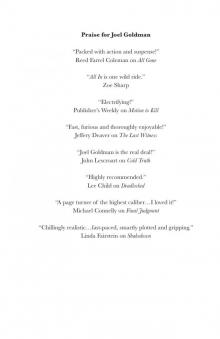 All Gone
All Gone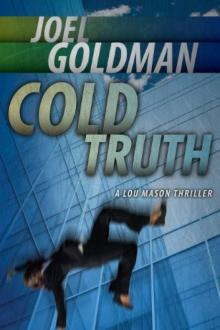 Cold truth lm-3
Cold truth lm-3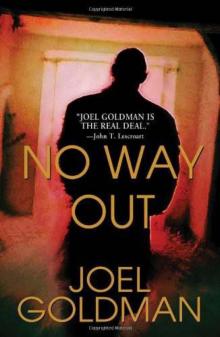 No way out jd-2
No way out jd-2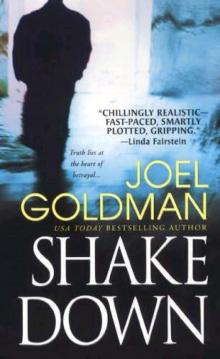 Jack Davis Mystery - 01 - Shakedown
Jack Davis Mystery - 01 - Shakedown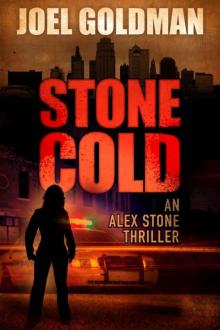 Stone Cold as-1
Stone Cold as-1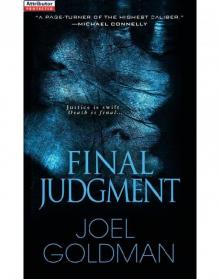 Final judgment lm-5
Final judgment lm-5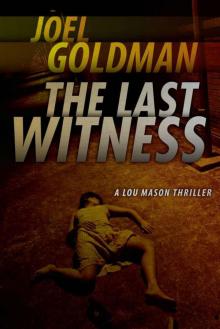 Lou Mason Mystery - 02 - The Last Witness
Lou Mason Mystery - 02 - The Last Witness Lou Mason Mystery 03-Cold Truth
Lou Mason Mystery 03-Cold Truth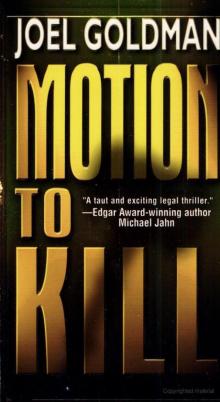 Motion to Kill
Motion to Kill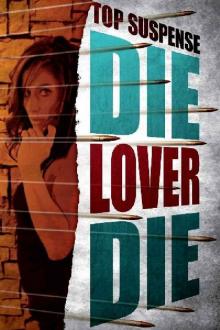 Die, Lover, Die!
Die, Lover, Die!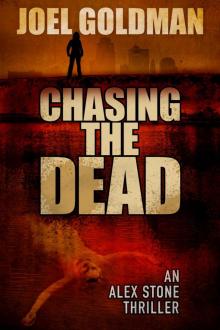 Chasing The Dead (An Alex Stone Thriller)
Chasing The Dead (An Alex Stone Thriller)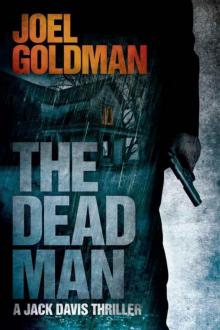 The Dead Man
The Dead Man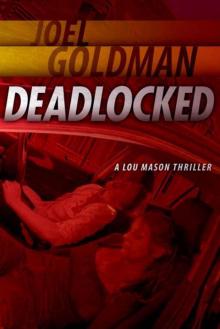 Deadlocked lm-4
Deadlocked lm-4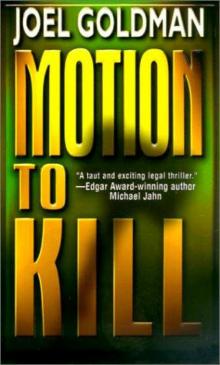 Lou Mason Mystery - 01 - Motion to Kill
Lou Mason Mystery - 01 - Motion to Kill Die, lover, die
Die, lover, die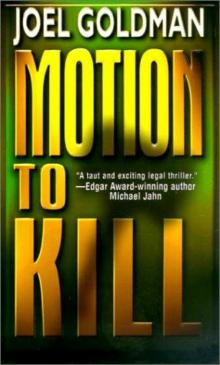 Motion to Kill lm-1
Motion to Kill lm-1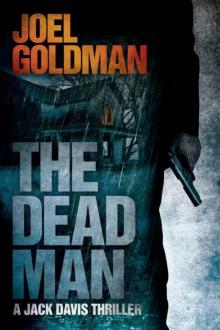 The Dead Man jd-3
The Dead Man jd-3